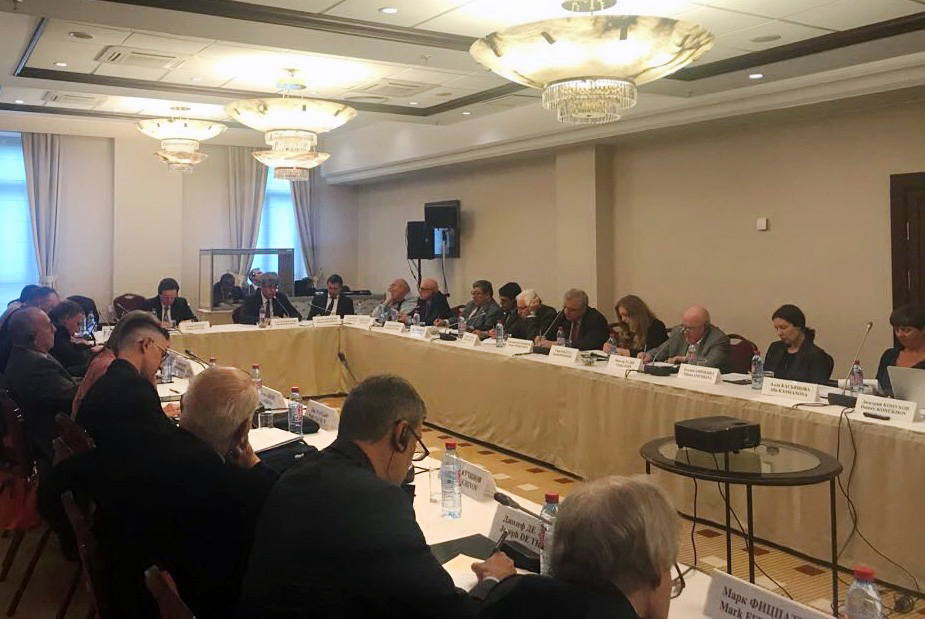June 15, 2018
On June 8–9, 2018, experts from the United States and the Russian Federation met in Moscow for a track 1.5 dialogue to discuss the historical context of the June 12 Trump–Kim summit in Singapore and the prospects for denuclearizing the Korean Peninsula. The meeting was the fifth in a series of dialogues organized by the James Martin Center for Nonproliferation Studies (CNS) and the Center for Energy and Security Studies (CENESS). Several high-level, current and former diplomats from both countries, including Deputy of the Russian State Duma Inga Yumasheva and Ambassador-at-Large Oleg Burmistrov, attended the dialogue. Ambassador Burmistrov, who has met repeatedly with high-ranking North Korean representatives on nuclear issues in both Pyongyang and Moscow, shared his views on sustainably reducing tensions on the Korean Peninsula, followed by questions from participants. The two-day dialogue covered the gambit of DPRK nuclear issues, from historical analysis and differences in assessments of DPRK nuclear and missile capabilities to potential next steps in addressing the current tensions on the Korean Peninsula.

The significance of the US–DPRK summit was not lost on participants, as the dialogue took place just a few days before the much-anticipated meeting between Donald Trump and Kim Jong Un. Although projections for the summit outcome were discussed, the primary focus remained on practical steps to address the DPRK nuclear program as a whole. Meeting participants were briefed on findings and recommendations of the recently published study by Stanford University researchers Siegfried Hecker, Robert Carlin, and Elliot Serbin, “A Comprehensive History of North Korea’s Nuclear Program.” Specific discussions involved questions on the evolving role of sanctions, what parties to a potential negotiation could bring to the table, scope and pathways to the demilitarization of nuclear and missile programs, conditions for dismantlement and verification, the role of International Atomic Energy Agency safeguards in future DPRK agreements, and lessons from the negotiations that led to the Joint Comprehensive Plan of Action on Iran’s nuclear program.
Two issues were particularly central to the debate: what verification activities would be necessary should a political arrangement on denuclearization be reached; and the role of international organizations in the process. The discussions in Moscow demonstrated the high value that both the United States and Russia attach to cooperative steps in solving nuclear and security issues on the Korean Peninsula. Participants agreed that the process moving forward should take into consideration interests of all parties in negotiations, while maintaining international norms and the stability of the global nonproliferation regime. Many participants also expressed the opinion that DPRK nuclear issues are unique and should be handled as such. They also supported the view that steps toward building mutual trust and institutionalizing the denuclearization process, as well as toward ensuring lasting peace and security on the Korean Peninsula, should be essential components of a comprehensive deal.
